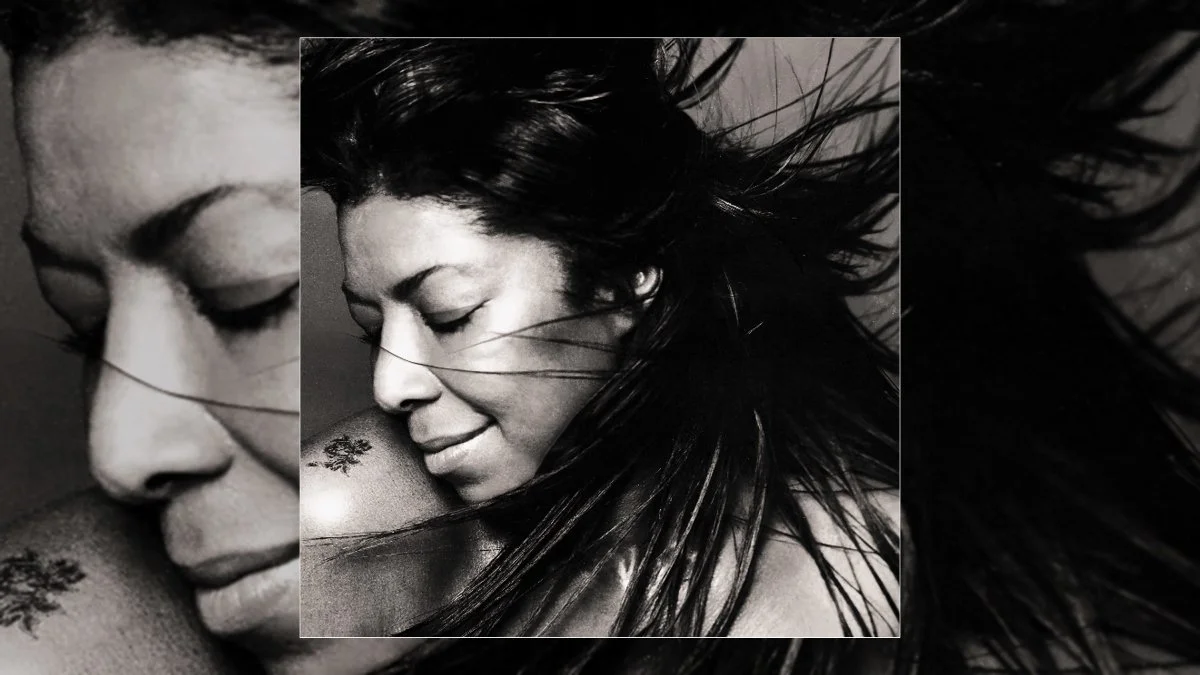Happy 25th Anniversary to Natalie Cole’s seventeenth studio album Snowfall On The Sahara, originally released June 22, 1999.
In 1999, one could divide Natalie Cole’s accomplished career into two distinct halves.
Act One: Cole came to immediate prominence as a new voice in contemporary rhythm and blues in the 1970s. Like her predecessor Aretha Franklin, Cole had power in her singing, but she also possessed a brighter characteristic to her tone that set her apart from the Queen of Soul. Cole’s first four albums—cut between 1975 to 1977 for Capitol Records—won her every commercial and critical accolade of the period. However, as the 1970s gave way to the 1980s, Cole’s personal struggles with drug addiction left her ill-prepared to handle a shifting popular music landscape.
Act Two: A refreshed Cole hit the comeback trail with Everlasting (1987) on Manhattan/EMI Records. A frothy collection of black dance-pop jams and ballads, Everlasting courted favor at radio and retail—both black and white. Cole would only render one more album in this vein with Good To Be Back (1989) before taking her boldest step forward as a recording artist yet.
Following behind Carly Simon and Linda Ronstadt, Cole dove headfirst into the “Great American Songbook”; this same aural tome had done well by her father, the legendary Nat “King” Cole. Unforgettable…With Love, Cole’s first LP for the Elektra label in 1991, was a palatial jazz song cycle that put her incomparable versatility as a vocalist into the spotlight.
Sales and awards arrived swiftly for Cole and in their wake she unleashed two post-Unforgettable…With Love jazz-pop vehicles: Take A Look (1993) and Stardust (1996). The former took to (then) present-day engagement with the genre, whereas the latter saw Cole return to the vintage turns of Unforgettable…With Love.
By the end of the 1990s, Cole now had two fan factions: her established R&B base and her recently minted pop base. Rather than coast on the crossover jazz format and cater to one side of her listening coalition, Cole used her seventeenth album—Snowfall On The Sahara—as an ambitious staging ground for all of her assorted musical interests to unite.
Listen to the Album:
Excluding the emotionally evocative title track—scripted by Cole, Ina and Peter Wolf (of J. Geils Band fame)—Snowfall On The Sahara is, as its sister records were before it, a covers album. Having exhausted the standards well on Stardust, Cole pivoted in the opposite direction to cull songs for Snowfall On The Sahara.
In perusing various canons—folk, blues, rock, soul, pop—for material, Cole found an eclectic batch of compositions to make her own: Leon Russell (“A Song for You”), Roberta Flack (“Reverend Lee”), Travis Tritt (“More Than You’ll Ever Know”), Taj Mahal (“Corinna”), D.J. Rogers (“Say You Love Me”), Aaron “Pinetop” Sparks (“Every Day I Have the Blues”), Patti Page (“With My Eyes Wide Open I’m Dreaming”), Michel Legrand (“His Eyes, “Her Eyes”), Judy Collins (“Since You Asked”), Bob Dylan (“Gotta Serve Somebody”), and Lorraine Ellison (“Stay with Me”).
Despite this stratum of songs hailing from different periods in popular music, they’re all cast in a decidedly modern and timeless fashion thanks to the late Phil Ramone. Ramone’s detailed approach strikes a balance between the succinct usage of production technology and session player instrumentation—the resulting long player is as organic as it is atmospheric. He also positions Cole’s pristine mezzo-soprano at the center of every track on Snowfall On The Sahara.
For these selections, Cole’s direct and honest performances bring their individual thematic narratives to vivid life as best heard on the album’s opener “A Song for You.” A true standard—renditions from Donny Hathaway and the Carpenters are equally beloved—Cole’s version fits her like a glove, mirroring her own personal trials and subsequent triumphs.
Musically, Cole wields an inviting, overarching R&B-pop coaction on Snowfall On The Sahara. Whether imparting plush, modish soul on entries like “Say You Love Me” or reveling in the filmic jazz-pop of “His Eyes, Her Eyes,” Cole proves that these two seemingly disparate sides of her creative persona are capable of coexisting. Parallel to these pieces, Cole also stretches herself with adult contemporary (“Since You Asked”), blues (“Corinna”) and rock fare (“Gotta Serve Somebody”).
Compared to the three records that preceded it, Snowfall On The Sahara pulled milder numbers after its release on June 22, 1999. Two singles—“Snowfall On The Sahara” and “Say You Love Me”—made demure waves at American adult R&B and pop outlets. The diminutive commercial reach of Snowfall On The Sahara spoke more to the shrinking mainstream market share for mature artists than to the quality of the long player itself.
Facing down these vocational complications, Cole’s audiences stayed faithful and kept her busy in her fourth decade of activity. She released five more lauded projects prior to her passing in 2015 at the age of 65. As excellent as each of those outings were, they pale in comparison to Snowfall On The Sahara—an album in which Cole arrived at a new artistic milestone by pooling all her musical strengths into one fetching form.
LISTEN:
Editor's note: this anniversary tribute was originally published in 2019 and has since been edited for accuracy and timeliness.

